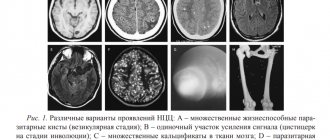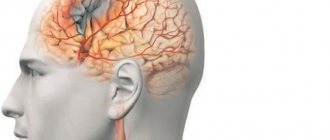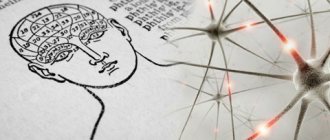Psychogenic dizziness is a feeling of discomfort, rotation of surrounding objects or the body during emotional disturbances (most often stress). Patients often mistake for dizziness sensations of lightheadedness, darkening and double vision, blurred vision, the appearance of “fog” before the eyes, “mesh.” Many of them put the feeling of instability at the forefront.
Research shows that psychogenic dizziness is inferior in frequency to benign paroxysmal dizziness. In any case, it has psychological roots.
What is psychosomatics
Approximately 7% of the world's population suffers from headaches constantly, regardless of associated factors.
About 10% of people experience similar sensations due to organic diseases. In other cases, we are talking about one of the forms of psychosomatic disorder. Psychosomatics is the name of the branch that studies the dependence of the development of somatic (physical) diseases on the psychological state of a person. Such pathological phenomena are observed in the absence of organic or physical prerequisites for their occurrence.
Most often, psychosomatic illnesses arise as a result of exposure to a stress factor. Stress can negatively affect the work and condition of any of the internal systems of the body (disruptions in heart and respiratory rhythms, changes in the tone of blood vessels, the functioning of the gastrointestinal tract, etc.).
Such transformations can cause:
- metabolic disorders;
- increased oscillatory mobility of blood vessels and intracranial pressure;
- the appearance of changes in cerebral circulation.
All this provokes the occurrence of pain syndromes of varying strength. Regular attack-like headaches are called migraines.
The name “psychosomatic diseases” speaks for itself; these are diseases whose causes lie in the psyche. However, this does not mean that these are some kind of fake, far-fetched and not real diseases at all. They are very real, only the causes of these diseases are not only in the entry of the virus into the body, not in the lack or excess of some hormone, but much deeper.
Our body just adapts to our mood, our thoughts. Since most people do not even track or realize their thoughts and emotions, our body acts as a very convenient means of feedback, showing that in this part of it, under the influence of negative emotions, something is not working correctly.
Our body begins to signal pain and discomfort even in extreme cases, when our emotions remain unheard for a long time, and mental pain continues to grow. And for this he should rather say thank you than be offended and complain that it is letting us down and not allowing us to live in peace.
Physical reasons
Psychosomatics identifies the following factors that can provoke headaches:
- Constant self-criticism. A person is highly dependent on the opinions of others, constantly critically evaluates his appearance, actions, achievements at work and in school. Strong experiences contribute to the formation of low self-esteem.
- Suppression of negative emotions. The patient forbids himself to experience anger and dissatisfaction towards other people and events occurring around him. An internal conflict is brewing. Suppressed aggression can also cause malignant tumors.
- Fear of judgment from loved ones. The need for recognition of your merits by loved ones is absolutely normal, but you need to understand that it is hardly possible to please absolutely everyone.
- Manipulation. Another psychosomatic reason why a headache may occur is a subconscious search for benefits from this pain - “indulgences” at work or study, a warmer attitude from a partner. With the help of poor health, a person gets the opportunity to manipulate colleagues and family members.
- Depression. The emotional factor is of great importance. In addition to headaches, depression causes insomnia, loss of appetite, and digestive problems.
- Hypocrisy. A person behaves in a manner unusual for him, hoping to gain personal benefit from it. His brain gets tired of the duality of what is happening.
- Dissatisfaction with one's own life. This also includes the inability to see the positive sides in difficult situations. A person is not satisfied with the way of life that he has created for himself, but at the same time there is no desire to change it.
Psychologists say that headaches are also provoked by stress, conflicts, and too much communication with unpleasant people. Often, cephalalgia is caused by a combination of several factors.
Possible causes of cephalalgia of a physical nature include:
- Chronic lack of sleep. If a person sleeps less than 6 hours a day, he develops chronic fatigue. In the future, returning to a normal sleep pattern will not be so easy.
- Lack of fresh air. This leads to oxygen starvation of the brain.
- Lack of physical activity. Lack of physical activity contributes to poor circulation and depression of the body's respiratory function.
- Prolonged stay in rooms with high noise levels. This affects factory floor workers.
- Diseases of the ENT organs: chronic runny nose, sinusitis, sinusitis. The pain is caused by pus, which is localized in the sinuses. To combat these diseases, you need to consult an otolaryngologist.
There are also quite serious causes of headaches, for example, neoplasms of a malignant or benign nature. This disease can be fatal.
Louise Hay sees fear and rejection of ideas or circumstances as the causes of nausea from nerves.
Liz Burbo writes that a person suffering from such nausea feels threatened by some person or event. What is happening disgusts such a person, since it does not agree with his plans. According to the psychologist, disgust can also be caused by a specific person or object. This feeling may be due to the fact that a person does not perceive what is happening objectively, but dramatizes it.
It should be noted that Liz Burbo gives an interesting explanation for nausea in pregnant women: they have difficulty accepting changes in their lives associated with pregnancy. They either have a disgust for their changed body, or a fear of losing freedom, causing their father’s disapproval, etc.
V. Sinelnikov claims that in the language of the subconscious, nausea and vomiting mean that there is something (someone) in a person’s life that (whom) he does not accept or digest and from which (whom) he wants to free himself.
Another reason for nervous nausea, according to Sinelnikov, is that a person experiences strong hostility and intransigence. According to the doctor, the subconscious mind of a person suffering from nausea refuses to accept some situation.
READ MORE: Headache dizziness nausea rapid heartbeat
As the causes of this illness, Sinelnikov especially highlights the presence of all kinds of subconscious fears in the patient.
At the moment when a person experiences a nauseating state, the body demonstrates a painful state. May experience hostility towards a specific person or circumstances around them, for example, toxicosis. The expectant mother is aware and waiting for her to have a child, but part of her mind is against the fact that there are restrictions associated with pregnancy: external changes, lifestyle adjustments, giving up habits, fear of the unknown.
When pregnancy is unplanned and disrupts plans, the body protests in the form of nausea.
Psychosomatics of severe nausea and subsequent vomiting can be:
- before new events;
- due to violation of established plans;
- due to fear of change;
- shortly before meeting an important person;
- with strong positive emotions.
The causes of nausea are not related to food intake or poisoning. Diet does not improve the condition, and therapy with medications can only temporarily relieve symptoms or is completely pointless.
The cause of the disease should always be sought in personal unresolved tasks and problems. Psychosomatics studies the causes of diseases at the emotional level. When a person is unable to emotionally cope with a problem, this leads to depression and an unstable state of mind. Emotions and experiences that a person tries to hide deep in the mind turn into physical illnesses.
The psychosomatics of poisoning and vomiting in an adult reveals the source of the disease or its symptoms and directs them to the path of healing the soul and body. Very often a person does not think that illness is a consequence of an internal state. But if the cause of the disease is not eliminated at the psychological level, then drug treatment will not be as effective, or its effect will not be long-lasting.
Three stages of the disease:
- Independent. The patient is unable to cope with mental disorders. Frequent nervousness leads to pain in the stomach. These may include vomiting and nausea.
- Frequent. The symptoms are similar to the previous stage, but they are systematic.
- Constant. This is a rare stage of the psychosomatics of food poisoning, in which aversion to food is added, and the symptoms occur constantly.
Factors contributing to symptoms:
- Swallowing air - in stressful situations, the pulse begins to quicken and breathing becomes heavier. In this case, a person may swallow air, which can lead to heaviness.
- Malfunction of muscle tone. During a nervous breakdown, the adrenal glands release adrenaline, which stimulates muscles to contract, including the stomach muscles. This may cause nausea and discomfort.
- The body's response to stressful situations. After nervous overstrain, the body tries to cleanse itself, preparing for further movement. As a result, there may be an urge to urinate, vomit and defecate.
- Past stress. The body remembers the state of stress and can resume the reaction.
The psychogenic nature of nausea/vomiting is explained by the following factors:
- muscle hypertonicity (with nervous tension, increased work of the adrenal glands is recorded to produce adrenaline (the fear hormone), changes in hormonal levels automatically lead to involuntary contraction of the stomach muscles, a feeling of discomfort in the epigastrium occurs;
- the body’s response to a stressful situation (in a state of danger, the body tries to solve the problem by escaping and turns on mechanisms to get rid of excess load - the contents of the stomach are forced out, and the patient experiences discomfort in the epigastric region);
- aerophagia/swallowing air (at times of nervous tension, the heartbeat and breathing increase, air accumulates in the esophagus and stomach, causing discomfort in the epigastrium);
- constant thoughts about nausea (if you regularly think about nausea, the subconscious activates the relapse process).
In cases where nausea does not have a causal relationship with psycho-emotional factors and disorders of the digestive system, the risk of pregnancy or the presence of somatic pathologies should not be excluded.
As a rule, a greater likelihood of psychogenic dizziness is observed in people predisposed to panic attacks. Women are most prone to this. Also, a feeling of fear, anxious fears can be attributed to the causes of such dizziness.
Let's highlight a few more reasons:
- Stressful situations.
- Overwork at work.
- Lack of sleep, insomnia.
- Excessive mental stress.
- Sudden change of position.
- Climate change.
- Hyperventilation syndrome.
- High blood pressure.
- Neuritis.
- Menopause in women.
- Motion sickness in transport, when riding on a swing.
- Altitude intolerance.
As a rule, all these situations are associated with worries or anxiety. There is also an obvious fear of losing control over the position of the body, falling and possibly getting injured.
Dizziness can bother a person for various reasons - somatic disorders, problems with the nervous system, disorders in the brain, hormonal changes, problems with the spine.
A special place is occupied by psychogenic dizziness - those that appear as a result of emotional disorders.
READ MORE: Dizziness, loss of appetite and memory
Let's look at the symptoms and treatment of this problem.
In the development of psychosomatic diseases, the main provoking factor is considered to be psychological.
To determine the possible causes of health problems, there is a table of diseases. How to treat a psychosomatic illness and get rid of its characteristic symptoms can also be learned from such tables.
Psychogenic dizziness
When talking about dizziness, we must not forget about one of the very complex problems related to this symptom. This problem is psychogenic dizziness.
This is a problem, in my opinion, because patients often cannot admit this fact, which means that the symptom may not go away, and a person suffering from psychogenic dizziness will go from one doctor to another, using a large number of drugs, undergoing expensive examinations and getting nowhere.
I also want to call this condition a problem because, according to various authors, up to 25% of all patients who consult a doctor with this symptom suffer from this type of dizziness.
And, unfortunately, it is also important that this condition is not always easy to differentiate from another pathology, and there are also situations of a combination of various causes of dizziness together with the presence of psychogenic dizziness. That is why I decided to write this article. I apologize that the article uses a non-scientific style, I resorted to it for better understanding, but at the end of the article I provide a list of scientific literature used to prepare the article.
:
Causes
There are many reasons for the development of psychogenic dizziness, but I would divide them into three main groups: emotional, non-emotional and background.
The emotional causes of the development of psychogenic dizziness include all factors that deplete the anti-stress systems of the brain, as well as contribute to an increase in the level of anxiety and depression. These include: serious acute psychotraumatic situations (death of close relatives, divorce, etc.
), chronic stress (work with increased load, more than 50 hours a week, night shifts, responsible work and working with people, unsettled personal life, etc.).
Also, emotional reasons include an initially high level of emotionality, because a person who “takes everything to heart” becomes emotionally exhausted much faster.
Well, any frustrating situations can be classified as emotional reasons, although in society and in the thoughts of the patient himself such situations do not have much significance, however, dissatisfaction of one’s desires for a long time also plays a role.
Among non-emotional reasons, I would include, first of all, a history of severe or acute episodes of dizziness (for example, a previous episode of benign positional vertigo, a history of vestibular neuronitis), a history of serious illnesses (malignant oncological diseases, major surgical interventions, heart attacks, strokes, etc.) .d.). These conditions allow the “subconscious” to either remember an episode of dizziness (in order to later “remember” it in a stressful situation, which will resemble a situation of acute dizziness, which was itself stressful), or “force” the subconscious to expect some new disease and allow it to feel any slightest negative symptoms in the body.
The background causes include compensated chronic pathology, which manifests itself as dizziness (for example, vestibular migraine, dyscirculatory encephalopathy, residual encephalopathy, etc.).
These diseases contribute to both the development of high levels of anxiety and are chronic stress, and also allow the “subconscious” to live with the idea that dizziness will inevitably develop in a person.
Symptoms (features)
Features of psychogenic dizziness require special attention. Psychogenic dizziness can be anything.
Systemic and non-systemic, constant and periodic, pronounced or weak, the symptom can develop at any time of the day, can be provoked by a change in body position in space, but not necessarily, develop at any level of blood pressure, its duration can vary from seconds to months and even years . Therefore, it is quite difficult to distinguish it from other causes of dizziness.
However, there are some features that are inherent mainly in this particular cause of dizziness.
Dizziness, as a rule, is provoked or intensified against the background of emotional excitement, is usually non-systemic in nature, and is usually not accompanied by noise in the head or ears.
Very often, dizziness is accompanied by other signs inherent in emotional exhaustion: increased sweating, a feeling of lack of air, panic attacks, nightmares, as well as other sleep disorders (disturbed falling asleep, interrupted sleep, etc.
), a feeling of being unable to swallow (feeling of a lump in the throat), may be accompanied by an increased heart rate. Symptoms of irritable bowel and restless bladder are common. General weakness and increased fatigue are often noted.
Forecast
The prognosis is generally favorable for life and health. Psychogenic dizziness does not pose a threat to the patient’s life, but requires increased attention, because incorrect or inadequate treatment, untimely and incorrect diagnosis can lead to a significant decrease in the quality of life of a patient suffering from psychogenic dizziness, as well as chronicity of the process.
Bibliography
- Zamergrad M.V., Parfenov V.A., Yakhno N.N. and others. Diagnosis of systemic dizziness in outpatient practice. // Neurological journal. 2014. 19. (2). 23-29.
- Levin O.S., Shtulman D.R. Neurology: a reference book for a practitioner. Moscow: Medpress-inform, 2013. 1016 p.
- Parfenov V.A., Zamergrad M.V., Melnikov O.A. Dizziness: diagnosis and treatment, common diagnostic errors: Textbook. // Moscow: MIA, 2009. 152 p.
- Romanova M.V., Isakova E.V., Kotov S.V. Complex treatment of patients with postural phobic dizziness. // Almanac of Clinical Medicine. —2013. (28). 3-8.
- Brandt T. Phobic postural vertigo. // Neurology. 1996. (6). 1515-1519.
- Bronstein AM Gresty MA et al. Phobic postural vertigo // Neurology. 1997. (46). P. 1480–1481.
Source: https://vertigonet.ru/psyhogennoe-golovokruzhenie/
Types of headaches
The following types of cephalalgia are distinguished:
- Tension. This includes headaches, which occur occasionally in almost any person. The pain is dull and concentrated in the upper part of the head.
- Migraine. The occurrence of migraine attacks is accompanied by severe throbbing pain and sensitivity to light. In this case, either the right or left side of the head hurts. When asked why migraine develops, psychosomatics answers this way: the inability to forgive insults and the desire to be better than others play a role.
- Cluster pain. More often observed in men than in women. Characterized by throbbing pain in the forehead and eyes. The attack lasts from 15 minutes to 1 hour.
You can also identify headaches caused by the appearance of a hangover syndrome. The headache is due to general intoxication of the body.
Another type of cephalgia is post-traumatic. A fall from a height or a blow to the head can cause a concussion. Its additional symptoms are nausea, dizziness, lack of coordination, and spots in the eyes. When such symptoms appear, a person needs urgent medical attention.
There are several variations of nervous nausea:
- constant (the nervous system is under complete control of stress, and the body mobilizes all resources in order to withstand nervous tension);
- periodic (the patient has a weakened immunity to psycho-emotional stress, which manifests itself in the form of discomfort in the abdominal cavity, a period of exacerbation alternates with a period of remission);
- spontaneous (the patient cannot cope with nervous tension, and the body defends itself by activating the gastric emptying mechanism).
If you think it's hard for you to change, then you're dealing with the hardest thing
lesson in your life. But there is no need to give up the idea of change because of this
resistance. You can work on two levels: 1. Consciously accept your resistance. 2. Constantly change. Watch yourself, watch how you resist and, despite this,
change.
Our actions often indicate that we are resisting. This can be expressed: - in changing the topic of conversation, - in the desire to leave the room, - go to the toilet, be late, - get sick, - look to the side or out the window; - in refusal to pay attention to anything, - in the desire to eat, smoke, drink, - to end the relationship.
What causes psychosomatic pain?
This illness appears as a result of the mental reaction to conflict or emotional trauma. Excitement, anxiety, anger, resentment and hostility - all this causes a reaction in the form of short-term pain.
In the latter case, it all starts with simple irritability and increased sensitivity. Then psychosomatics and headaches appear, and at the final stage the nervous system is exhausted.
The writer claims that when we fully accept and love ourselves, life immediately begins to change for the better, even in small things. We begin to attract new interesting events, new people, financial prosperity and confidence in the future appear. All her affirmations are based on this belief. And these are not miracles, but a natural pattern that people have forgotten how to believe in!
Also, as a result of complete acceptance of yourself, you begin to change in appearance, many quickly become younger, your weight returns to normal, you feel a surge of strength and energy.
Signs of transferring responsibility to other people for your actions and failures
Dizziness of a psychogenic nature at the developmental stage has several signs:
- Performance decreases and fatigue increases.
- Mood worsens, irritability increases.
- Appetite either disappears or increases sharply.
- Sexual activity may decrease or increase sharply.
For those who have experienced psychogenic dizziness, patients describe the symptoms as follows:
- Tinnitus appears, but hearing is not lost.
- Fog in the head.
- There is a feeling of instability, but this does not affect the gait.
- Attention is completely focused on the noise and dizziness.
- There is increased anxiety.
- There is a feeling of lack of air.
- Cold sweat.
- Thinking is unclear, confused.
These symptoms are also typical for panic attacks. You can also add a few characteristic symptoms:
- Cardiopalmus.
- Possible trembling of limbs, chills.
- "Formication.
- Irrational fear of impending disaster.
- "Cotton" legs.
This condition can also be caused by memories of a traumatic situation.
Psychogenic dizziness is not caused by a disorder of the vestibular system, although the symptoms are very similar.
It is worth noting that manifestations of these disorders can be called psychogenic only if the patient recognizes the connection with the cause.
"They". We give away our power to others and use it as an excuse to resist change. We have the following ideas in our heads: - The moment is not right. - “They” will not allow me to change. - I don’t have the right teacher, book, class, etc. - My doctor says otherwise. - It's their fault. - First they must change.
- They don’t understand. - This is against my beliefs, religion, philosophy. - We think about ourselves: Too old. - Too young. - Too fat. - Too thin. - Too high. - Too small. - Too lazy. - Too strong. - Too weak. - Too stupid. - Too poor. - Too serious. - Maybe all this is not for me.
Symptoms of PG
The severity of signs of PG can change daily. Sometimes the symptoms are barely felt, and after some time the patient is overcome by waves of dizziness, even to the point of loss of consciousness. For most neurasthenics, the intensity of PG attacks depends entirely on what is happening in their personal lives. But not in all cases it is possible to trace a clear cause-and-effect relationship between a traumatic event and PG. Sometimes dizziness, lightheadedness and fainting occur for no apparent reason.
Psychogenic dizziness is characterized by the following symptoms:
- there is a lack of air, increased sweating, and a feeling of increased anxiety;
- there is a feeling of dizziness, ringing in the ears, without decreased hearing and vestibular disorders;
- productivity decreases, fatigue increases;
- attention is focused on subjective internal sensations and ringing in the ears;
- The patient’s mood is reduced, excitability and irritability increase;
- there is a sharp change in libido, it is either completely absent or significantly increased;
- appetite also either decreases or “ravenous hunger” occurs.
Balance tests are performed on the patient. PG is characterized by a decrease in swaying when the patient’s attention is diverted during the Romberg pose to certain actions. PG is characterized by spontaneous appearance in a standing position or when moving.
Associated symptoms
Psychosomatic disorders are often not limited to the appearance of cephalgia alone. The patient may be accompanied by the following symptoms:
- Nasal congestion in the absence of colds.
- Digestive problems, constipation or diarrhea.
- Skin rashes that resemble allergies.
- Menstrual cycle disorders in women.
- Rapid shortness of breath, inability to breathe deeply.
- Pain on the right side of the head or on the left, caused by migraine, is accompanied by nausea and vomiting.
READ MORE: Impaired motor coordination in dogs
A person may also complain of rapid heartbeat, dizziness, and a feeling of weakness in the limbs. Pain in the back and muscles often occurs.
Psychosomatic dizziness is a complex of symptoms in the form of:
- lightheadedness;
- feelings of intoxication;
- anxiety;
- tension;
- darkening before the eyes;
- loss of balance;
- tinnitus;
- sensations of rotation of surrounding objects;
- lack of oxygen;
- increasing anxiety, severe nervousness.
Symptoms usually occur spontaneously, but usually the person begins to notice that the cause is a specific situation (for example, a fear of closed spaces or when a person begins to be among crowds).
Almost always, vertigo in depression is accompanied by hyperventilation, muscle spasms, and tachycardia, which indicates its vegetative nature.
Discomfort in the epigastrium arising from nervousness is accompanied by:
- dizziness, headache;
- easy excitability;
- nervous tics;
- memory impairment;
- drowsiness;
- insomnia;
- decreased concentration;
- blood pressure changes;
- Bad mood.
These signs can appear either together or separately. The presence of one or two symptoms is a good reason to consult a doctor.
There are symptoms that patients mistakenly confuse with dizziness.
Here are some of them:
- Feeling unsteady.
- Feeling of "emptiness" in the head.
Many have encountered such a condition as dizziness. This complaint is often heard at an appointment with a therapist and neurologist. When dizziness occurs, everything begins to float before the eyes and spin, and the person loses orientation in space. This can happen for various reasons, or it can be a symptom of some disease. Let's talk about what psychogenic dizziness is. We will also consider symptoms and treatment.
Attacks of severe anxiety or phobia
Panic attack is a condition in which a person experiences a feeling of intense fear, accompanied by somatic symptoms, expressed mainly in adults. The body tries to improve the condition by emptying the body, resulting in nausea and vomiting.
Phobias are a state of causal fear. Example: when you are in a confined space, you experience increased blood pressure, muscle spasms, increased heart rate, breathing, and get nervous. May cause nausea and vomiting. Depression is a somatic symptom of stress. The conditions do not lead to death, but increase the load on the heart and blood vessels. Panic attacks, phobias, and depression are treated by a psychotherapist.
Nausea is a sign of stress on the body and the need for help. Neurosis does not always require medication or medical intervention.
Cases that do not require medical intervention:
- The nausea is not severe, there is no vomiting.
- Short duration of nausea.
- Nausea goes away after the critical situation is resolved, and the neurosis goes away.
Cases requiring medicine:
- Disturbance, complete lack of sleep.
- The duration of nausea lasts more than a day, the patient’s condition worsens.
- Anxiety for more than 3 days.
- Sedatives have no effect on the body.
- Lack of appetite, the person does not drink fluids.
- Psychosomatically: in addition to abdominal pain, there is vomiting. The causes of the condition need to be clarified. Share the problem with the doctor, you need communication, a desire not to isolate yourself.
Diagnosis of the disease
Before starting treatment for psychogenic dizziness, you need to undergo a diagnosis. The patient is recommended to consult the following specialists:
- therapist;
- otolaryngologist;
- cardiologist;
- neurologist;
- psychiatrist.
To determine the causes and nature of vertigo, the following types of examinations are prescribed:
- Ultrasound examination (ultrasound) of large vessels and arteries that supply blood to the brain;
- computed tomography (CT) of the brain. Allows you to identify disorders in the structure of the brain;
- radiography of the skull and cervical spine;
- blood tests: general and biochemical;
- determination of blood sugar levels;
- balance tests;
- audiography;
- definition of nystagmus.
At the initial stage of diagnosis, the doctor must exclude all causes that may be associated with loss of balance. These include:
- problems with vestibulation;
- diseases, the symptoms of which are dizziness and fainting.
The examinations described above help to detect and distinguish between these diseases.
At the second stage, neurotic disorders that arise against the background of stress and depression are diagnosed. The most common causes of a psychogenic nature are anxiety-depressive disorders and panic attacks.
If you have a question about how to treat psychogenic dizziness, you need to contact a therapist, who will then refer you to specialized specialists:
- Otorhinolaryngologist.
- Neuropathologist.
- Cardiologist.
- To a psychiatrist.
To find out the reasons, specialists may prescribe the following types of examination:
- Computed tomography of the brain. Allows you to recognize abnormalities in the structure of the brain.
- Ultrasound of large arteries and vessels that supply blood to the brain.
- X-ray examination of the skull and cervical spine.
- General and biochemical blood test. Determination of blood glucose levels.
- Balance tests are required.
- Audiography.
- Definition of nystagmus.
At the initial stage of diagnosing psychogenic dizziness, the doctor must exclude all possible causes that are associated with loss of balance.
These include:
- Damage to the vestibular apparatus.
- Diseases in which one of the symptoms is loss of consciousness, fainting.
- Diseases of a neurological nature, which are accompanied by impaired walking and balance.
The above examinations will help find the true cause.
At the second stage, neurotic disorders that arise as a result of stress are diagnosed. As we found out earlier, the most common cause is panic attacks and anxiety-depressive disorder. We will consider how to get rid of psychogenic dizziness further.
How is neurogenic vertigo diagnosed?
At the first stage of diagnosis, it is important to determine the type of dizziness
Somatoform vertigo is diagnosed by excluding other organic diseases. First, the doctor performs a physical examination of the patient and draws a small amount of blood from a vein in the elbow. If cardiac pathologies are suspected, electrocardiography is prescribed. After studying the ECG, the patient is sent for an ultrasound examination to exclude pathologies of the abdominal organs. Based on the results of blood tests, the presence of inflammatory, infectious, allergic or other organic causes can be excluded.
Only a differentiated psychosomatic diagnosis can help create the correct treatment plan. If misdiagnosed, patients continue to suffer from dizziness, which can significantly reduce their quality of life.
Psychogenic vertigo does not go away on its own, so psychotherapeutic intervention is required.
Ways to cure nausea caused by nervousness
To begin with, it should be recalled that if nausea lasts more than a day and a person becomes worse both mentally and physically, then the help of a psychotherapist is urgently needed!
In cases where nausea goes away on its own after stressful situations, a person suffering from this illness can independently work on himself.
It is recommended to begin the healing work by searching for an answer to the question “Why do I feel disgusted by this person (event, etc.)?” At the same time, it is important that your answers are direct and honest (otherwise who are we trying to deceive if not ourselves).
If the hidden cause of your nausea is found, then the second step is to change your attitude towards the apparent problem that caused your nausea from negative to positive.












